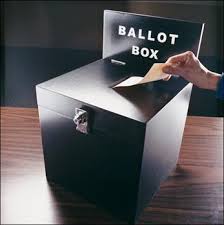 Public officials and elected government leaders face a particular set of challenges when they undergo rehabilitation for addiction. As most severe addictions require residential inpatient treatment, government officials end up more separated from their civil duties and their lifestyles than usual. This is where the concept of executive drug and alcohol rehabilitation comes in useful. Executive addiction treatment centers are created with working professionals, such as elected officials, in mind, and accomodate their need to stay connected to their pubic office and their lifestyle while still focusing daily on sobriety.
Public officials and elected government leaders face a particular set of challenges when they undergo rehabilitation for addiction. As most severe addictions require residential inpatient treatment, government officials end up more separated from their civil duties and their lifestyles than usual. This is where the concept of executive drug and alcohol rehabilitation comes in useful. Executive addiction treatment centers are created with working professionals, such as elected officials, in mind, and accomodate their need to stay connected to their pubic office and their lifestyle while still focusing daily on sobriety.
Public officials prefer the option of executive rehab because it allows them to keep their public office functioning while they receive extensive mental and medical treatment. Executive drug and alcohol treatment programs often boast a high class environment to keep with the client’s usual surroundings, the most current treatment methods and highly trained staff available and a familiarity with the needs and pressures on successful elected officials, particularly those who have remained functional and successful despite their addiction problems.
At private drug and alcohol rehabilitation centers, public officials can expect to find business center type accommodations, such as internet, phones and fax machines in order to remain active in their line of work. Professional rehabs will also frequently adjust the schedule of their programs to accommodate business trips and meetings that the client needs to attend. This, accompanied by a thorough detoxification, a modern treatment program, individual and group counselling sessions, and continuing support services is what ensures the success of the executive rehabilitation program.
For elected government officials who require a rehabilitation center that keeps their jurisdiction’s success in mind, executive rehab is the treatment that will suit them best. There is no need to face the pain of addiction alone, and no need to endure treatment that is not compatible with your lifestyle.


